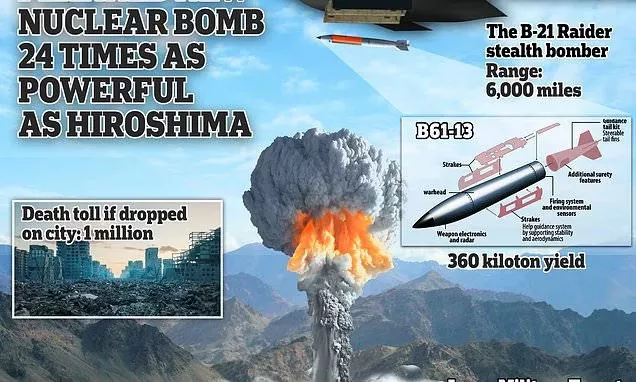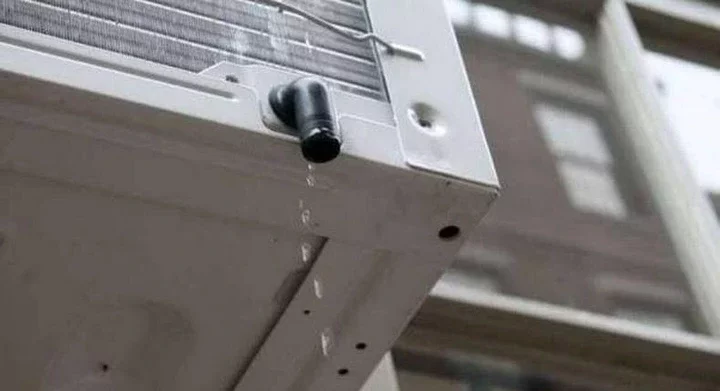
The Department of Defense has announced it has plans in place to build a powerful new nuclear bomb that will be 24 times more powerful than one of the bombs dropped on Japan during World War II.
The Pentagon is seeking congressional approval and funding to pursue a modern variant of the B61 nuclear gravity bomb, which will be designated the B61-13, according to a DoD press release.
"Today's announcement is reflective of a changing security environment and growing threats from potential adversaries," Assistant Secretary of Defense for Space Policy John Plumb said in the release. "The United States has a responsibility to continue to assess and field the capabilities we need to credibly deter and, if necessary, respond to strategic attacks, and assure our allies."
A fact sheet included with the release said the B61-13 will have a similar yield to the B61-7, which according to a Defense News report, has a maximum yield of 360 kilotons. The load is 24 times larger than the bomb dropped on Hiroshima, Japan, during World War II, which was about a 15 kiloton bomb. The B61-13 would also be about 14 times larger than the bomb dropped on Nagasaki, which was 25 kilotons.
According to the fact sheet, the powerful new bomb will also "will include the modern safety, security, and accuracy features of the B61-12."
The announcement comes amid rising tensions around the globe, with the U.S. conducting a high-explosive experiment at a nuclear test site in Nevada earlier this month. Corey Hinderstein, the deputy administrator for defense nuclear nonproliferation at the National Nuclear Security Administration, said the test was meant to advance "our efforts to develop new technology in support of U.S. nuclear nonproliferation goals."
"They will help reduce global nuclear threats by improving the detection of underground nuclear explosive tests," Hinderstein said of the experiments.
The new bomb will be deliverable by modern aircraft, the release notes, and will be designed to give the president options to strike hard and large-area military targets.
If approved, the bomb would replace some of the current B61-7s currently in the U.S. nuclear stockpile instead of increasing the size of U.S. nuclear stocks, the release noted.
"The B61-13 represents a reasonable step to manage the challenges of a highly dynamic security environment," Plumb said. "While it provides us with additional flexibility, production of the B61-13 will not increase the overall number of weapons in our nuclear stockpile."














Comments